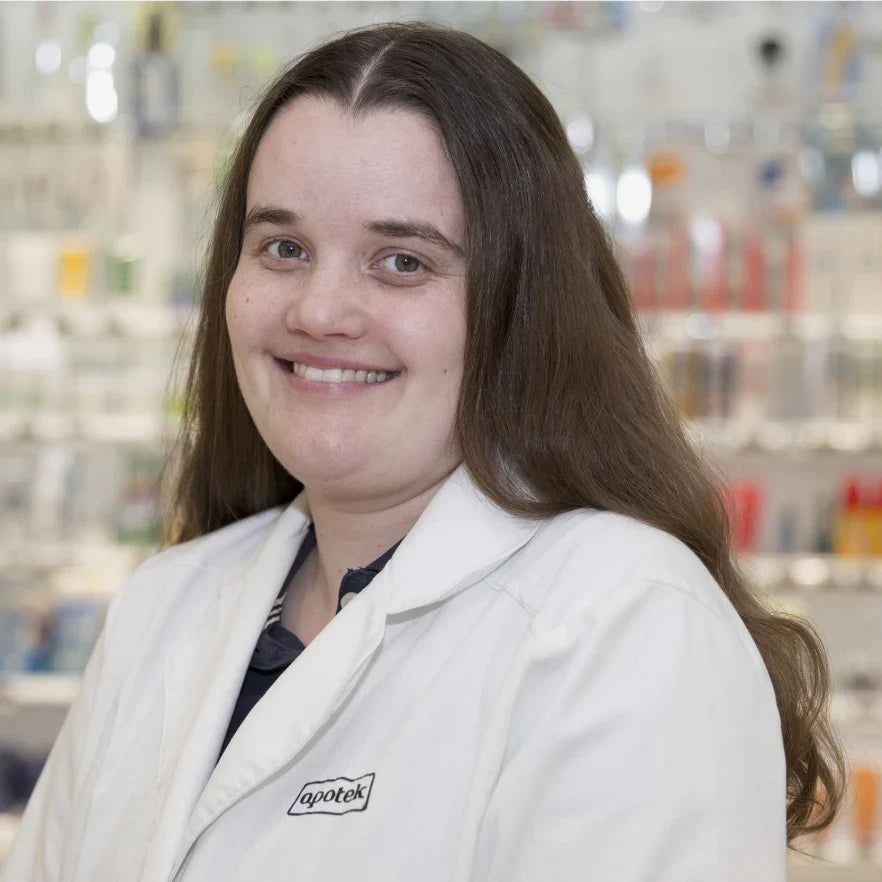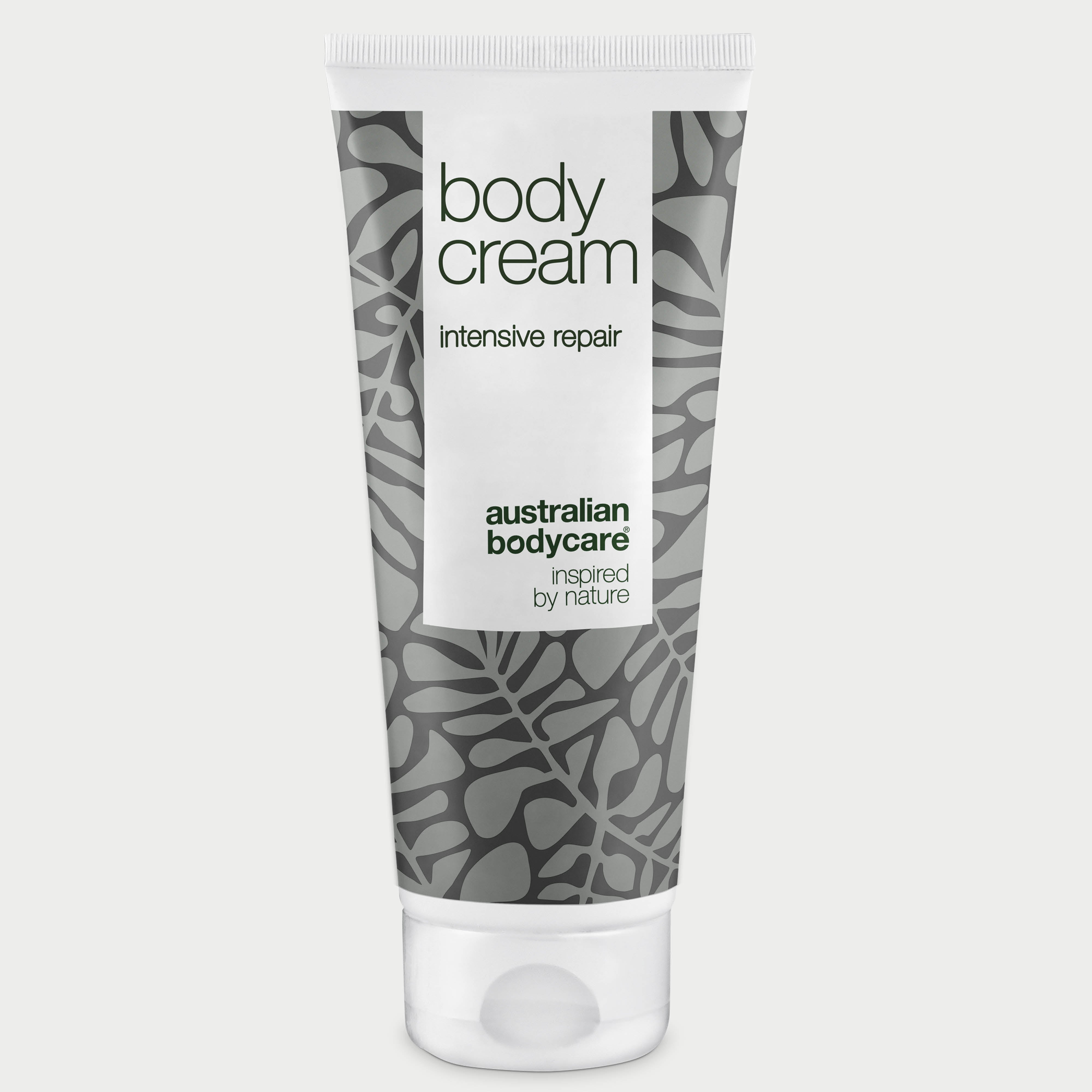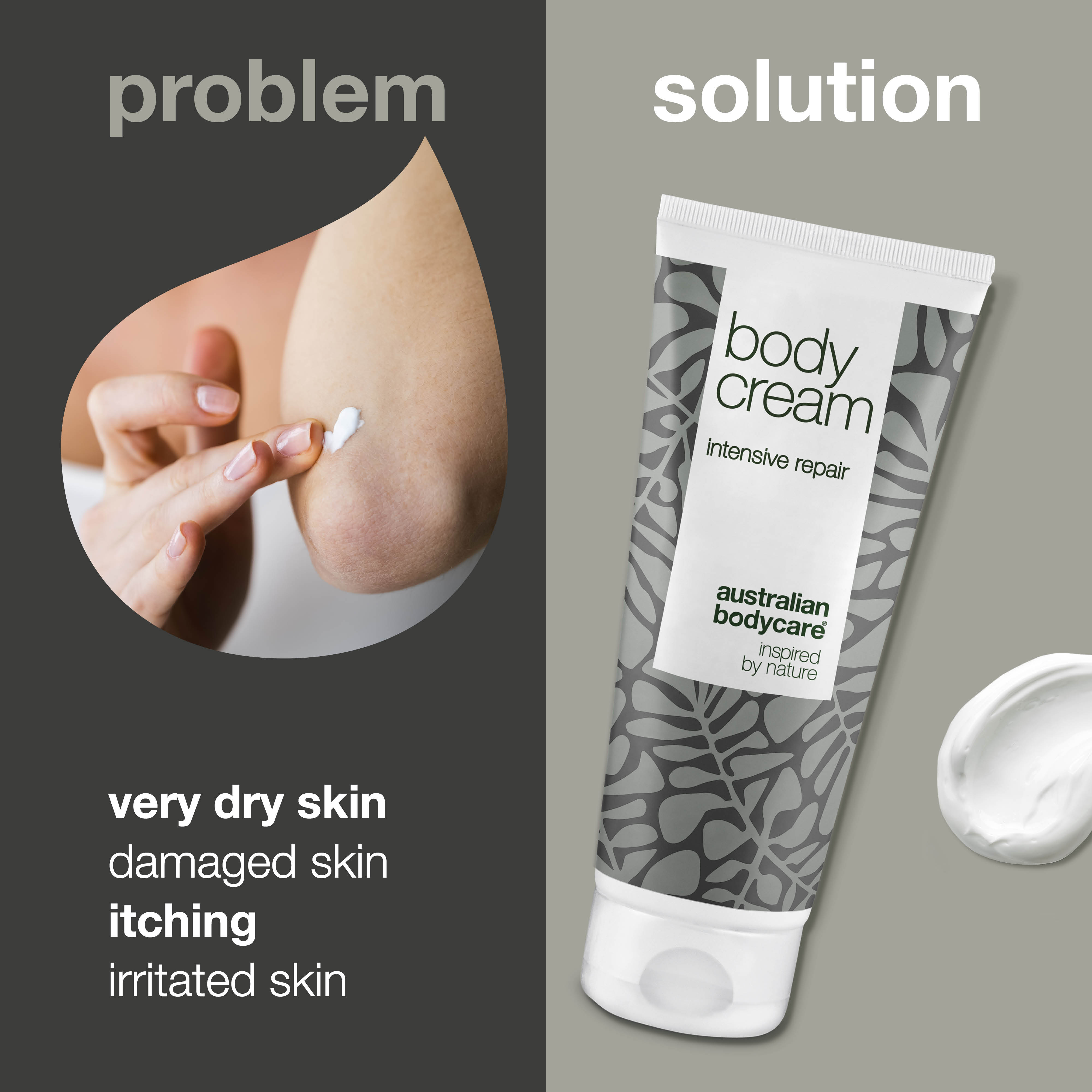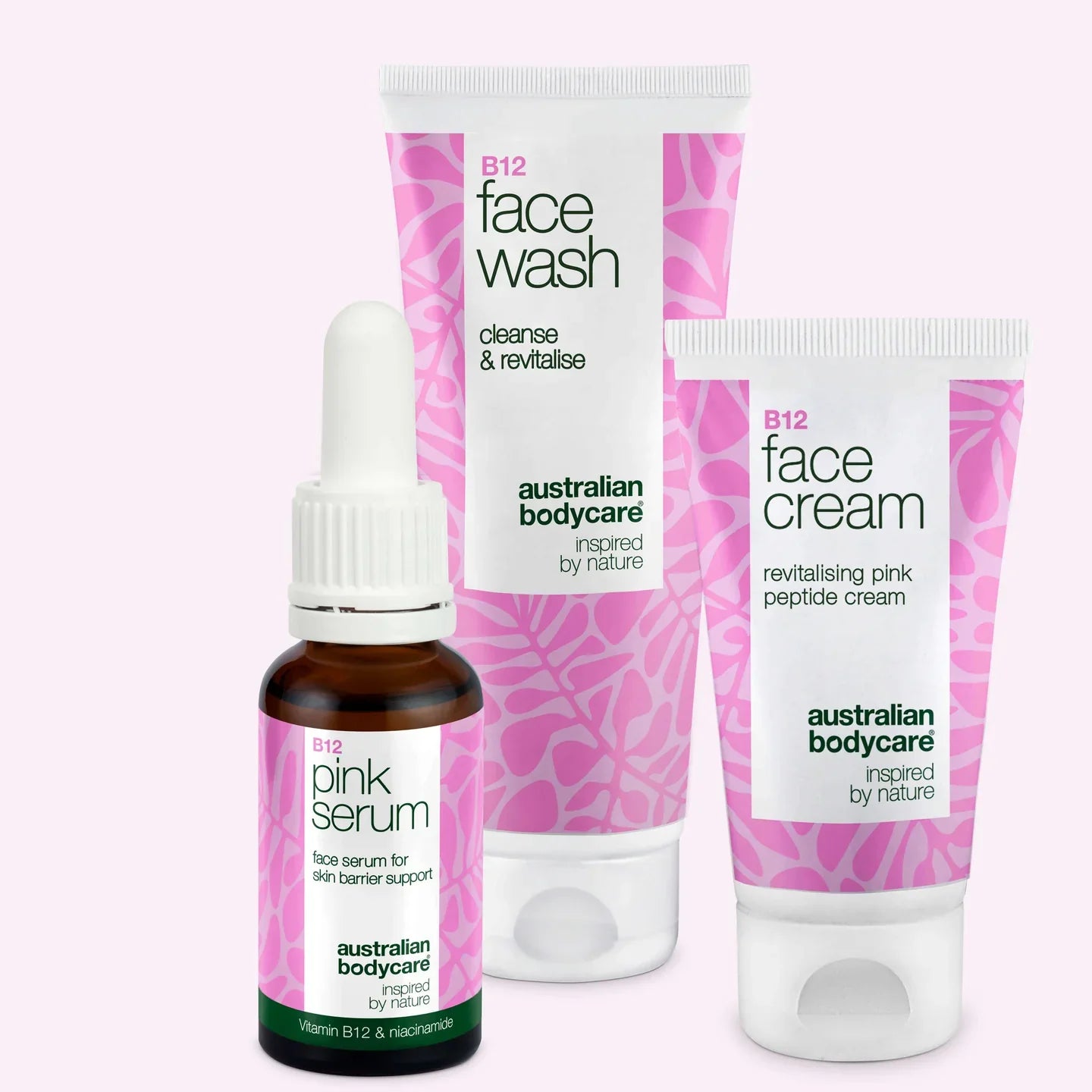Psoriasis - Good options for prevention & treatment
Table of contents
What is psoriasis and who does if affect?
Psoriasis is one of the most common skin diseases. Anyone can be affected by psoriasis, but it often occurs between the ages of 10 and 30. Men and women are equally affected.
Psoriasis is a hereditary disease, but you can easily be predisposed to the disease without ever getting an outbreak. However, you can also develop the disease even if there has been no history of psoriasis in your family, or perhaps the disease has skipped a generation.
Psoriasis is a chronic skin disease that is not contagious. It is an inflammatory disease involving an inflammatory condition of the skin. Outbreaks are characterised by red, thickened and itchy areas on the skin covered by a whitish, shiny scale.
You can treat it and prevent it, but there is no cure
Unfortunately, there is no cure for psoriasis - so once you have psoriasis, you will have it for the rest of your life. However, the severity of psoriasis and the frequency of outbreaks varies greatly. And there are good opportunities to treat outbreaks and prevent new outbreaks by recognising and following various factors.
Psoriasis is not a dangerous disease, but it is very stressful to live with a disease that manifests itself in the form of visible red and white patches on the skin. Having psoriasis is therefore a major challenge, especially psychologically and socially.
What are the symtoms for psoriasis?
The symptoms of psoriasis are red, thickened patches on the skin that are typically clearly defined. The patches can be of many different sizes - from tiny teardrop-shaped patches to palm-sized patches. The patches will usually be covered by a whitish, shiny scale. The affected areas may itch. When the patches are scratched or scratched, they bleed easily.
Very mild cases of psoriasis can be mistaken for eczema. So if you have just a small patch of psoriasis on your back, you may not even realise you have psoriasis. At the other end of the scale are severe cases of psoriasis that cover most of the body and where the sufferer is severely affected by the disease.
Where can psoriasis occur?
Psoriasis most commonly affects the lower back, elbows, knees, scalp, face, buttocks, palms, nails, under the arms, groin and abdomen. Psoriasis can occur over most parts of the body, and depending on where it strikes, the outbreak also looks different. Read more about this in the following sections on the different types of psoriasis.
Plaque psoriasis (or psoriasis vulgaris)
The most common type of psoriasis is known in Latin as plaque psoriasis or psoriasis vulgaris. This is the type of psoriasis that affects 80% of people with psoriasis. It is characterised by red and white patches with a scaly surface. The patches start as a small red dot or drop that grows into large red and scaly, thickened patches of skin.
The spots are typically round and 3-10 cm in size. Often the spots appear symmetrically; that is, if you have a spot on one elbow, you will have a similar spot on the other elbow. The outbreak can be a few spots or spread to most of the body. The patches are itchy and cause a burning sensation on the skin.
Plaque psoriasis or psoriasis vulgaris typically occurs on the elbows, knees, legs, knuckles, back, palms of the hands, soles of the feet, genitals and scalp.
Inverse psoriasis
Inverse psoriasis is a variant of the common type of psoriasis. Inverse or internal psoriasis most often occurs in warm and moist skin folds. It can be under the arms, in the groin, under the breasts, between the buttocks, in the abdomen and on the genitals.
Inverse psoriasis presents as red, shiny patches that typically do not scratch. In women who have psoriasis of the abdomen, the rash typically appears on and between the labia, in the groin and on the inside of the thighs. In men, it will be on the inside of the foreskin.
Inverse psoriasis can easily be mistaken for a fungal infection, partly because it is also associated with an itchy rash.
Guttate psoriasis
Guttate psoriasis is another very common form of psoriasis. It typically presents as 2-5 mm teardrop-shaped rashes all over the body.
Guttate psoriasis often develops at a young age in association with an infection, typically a streptococcal infection associated with strep throat.
Pustular psoriasis
In pustular psoriasis, blisters form on the skin filled with fluid or pus. The blisters eventually dry up and turn into brownish crusts. Pustular psoriasis can affect the palms of the hands and soles of the feet or generally all over the body. The affected areas become swollen, red and tender. This type of psoriasis usually only affects adults.
Scalp psoriasis
Scalp psoriasis is a very common type of psoriasis, affecting around one in two people with psoriasis. It typically occurs in the hairline behind the ears, on the back of the neck or on the forehead, where it appears as slightly red patches or itchy, thickened areas with scales.
Nail psoriasis
About 25-50% of people with psoriasis also have nail psoriasis, which appears as pinpoint indentations in the nail ('thimble dots') or dark discolouration or thickening of the nail. There may also be streaks in the nail and the nail may become loose. Both toenails and fingernails can be affected.
Are you suspecting that you might have psoriasis?
If you experience symptoms that resemble those of psoriasis, it is important to see your doctor. Your GP may refer you to a dermatologist who can make a diagnosis and suggest a treatment.
It is important that you have a definite diagnosis before you start trying different treatments yourself, as the symptoms may be a sign of other conditions.
How can you treat psoriasis?
Unfortunately, there is no cure for psoriasis, regardless of the type of psoriasis you suffer from. The aim of treatment will therefore always be to relieve symptoms, keep the disease under control and ensure that it doesn't ruin your quality of life.
Because it is a chronic disease, it is easy to become overwhelmed when you are diagnosed with psoriasis - an itchy and highly visible rash. You may react by becoming angry, sad, feeling powerless or in denial. Looking different is never fun for children or adults, but it can be particularly difficult for children and young people in their teenage years.
The best thing you can do is to familiarise yourself with the disease and what it entails. It is also important to take an active role in your treatment and find out what you can do to prevent outbreaks.
Choice of treatment
The type of psoriasis you have and how badly you are affected will play a big part in the doctor's choice of treatment. The degree of psoriasis is measured on a so-called PASI score, and the grading depends mainly on how much of the body is affected. A distinction is made between mild, moderate and severe psoriasis.
External treatment
The first treatment suggested by the doctor will almost always be external treatment with creams, ointments, shampoos, foams and liniments. These are products containing tar, vitamin D or hormones of different strengths, for example, adrenocortical hormone. All of this is something you have to use at home.
As psoriasis is an inflammatory disease, the key is to counteract bacteria and fight the inflammation of the skin.
For mild psoriasis, treatment with a rich moisturiser or creams and ointments will often be enough.
Particularly inverse psoriasis may be accompanied by fungal and bacterial infections, which also need to be treated with separate medications.
Climatic treatment with saltwater
In moderate cases of psoriasis, topical treatment with creams, ointments and the like can be supplemented with tar baths or saltwater baths, which have a beneficial effect on the skin. In addition, climatic treatment with salt water baths is available in the Dead Sea in Israel.
Tar baths are available in hospitals, where you can also receive treatments involving the application of tar. Tar is one of the oldest known methods of treating psoriasis. It is an effective treatment. However, the disadvantage of tar is that it has an unpleasant odour and increases the sensitivity of the skin to light.
Light treatment
Moderate amounts of sunshine have a beneficial effect on psoriasis. Regular sun and beach holidays will therefore be beneficial for psoriasis patients. And many patients also find that their disease improves in the summer, when the sun and higher humidity have a beneficial effect.
Instead of treatment in the sun, artificial light can be used in the form of light therapy, including ultraviolet light. This is an effective treatment for many people.
Systematic treatment
Localised treatment treats only the affected area of the skin. Systemic treatment, on the other hand, treats the whole body. This can be done with tablets or injections.
Systemic treatment is only used for patients with severe and debilitating psoriasis, as it is a harsh treatment.
Make sure you stick to the treatment
Much of the treatment for psoriasis is done at home. You will need to apply creams and ointments according to the plan given to you by your doctor. It is important for a good treatment result that you stick to the plan. It also helps to minimise the risk of new outbreaks.
Unfortunately, many people with psoriasis stop taking treatment for their condition because they can't bear to apply creams and ointments every day, or because they don't feel that the treatment is working. But it is important to find a new treatment option rather than stopping treatment altogether.
What can you do in order to prevent psoriasis?
Even if you have a hereditary predisposition to psoriasis, it still takes a trigger for the disease to break out. This could be: an infection (for example with streptococcus or HIV), alcohol, smoking, obesity, stress, pregnancy or certain medications. And even if you already have psoriasis, there is a lot you can do to prevent or stop new outbreaks. You can have psoriasis but find that you have it for years between outbreaks. The chances of a long time between outbreaks increase if you take good care of yourself and your body.
A healthy lifestyle
A healthy lifestyle with moderate intake of alcohol or no alcohol, no smoking, healthy eating and exercise has a beneficial effect on psoriasis.
Stress, both physical and mental, is not good for the body - even when you have psoriasis.
Remember the cream
When you have psoriasis, it is important to apply creams at least once a day. Skin with psoriasis dries out more quickly than normal skin. If the skin gets too dry, it can start to flake off with dandruff. This looks uncomfortable and affects your well-being.
Avoid long hot baths, which can dry out the skin. And remember to apply a good moisturiser every time you take a shower.
READ MORE : Dry skin - how to get rid of the problem
Sunshine in moderate doses
Sunlight has a beneficial effect on psoriasis sufferers, but it is of course important that you enjoy the sun in moderation and remember to apply a good sun cream to avoid burning.
Many psoriasis patients experience a clear improvement in the summer - and unfortunately also a correspondingly clear deterioration when it becomes autumn and winter. If you have the opportunity to go on holiday in the sun during the winter, it will of course be good. But make sure you also avoid frost and cold weather as much as possible. Wrap up well when you go out.
What is psoriatic arthritis - and who does it affect?
This condition is known by its Latin name psoriatic arthritis. Research suggests that up to a third of people with psoriasis will eventually develop psoriatic arthritis. It affects men and women equally. Like psoriasis, psoriatic arthritis is hereditary and many people develop it at a young age.
Psoriatic arthritis is psoriasis of the joints and can affect any part of the body, but typically affects the fingers, toes, wrists, back, knees, hips and pelvis. Typical symptoms include sore, red and swollen joints, reduced joint mobility, stiffness of the joint in the morning and evening, and possibly changes in the nails and inflammation of the eyes.
The symptoms can be similar to those of other types of arthritis. However, if you already have psoriasis, be sure to mention it so that your doctor is more aware that you may have psoriatic arthritis.
Psoriatic arthritis is a chronic disease that cannot be cured, but there are different treatment options. The choice depends on how badly you are affected. You can get pain relief from your symptoms with over-the-counter medication, arthritis medication or injections of adrenal cortex hormone. If you are very affected by your condition, you can opt for a systemic treatment that treats the whole body, either with pills or injections.
Sun and heat are also good for psoriatic arthritis, so travelling to the heat is a good remedy, and light therapy is another option. The physiotherapist, chiropractor and occupational therapist can help with physical training, exercises, massage, treatment and the right postures and aids.







